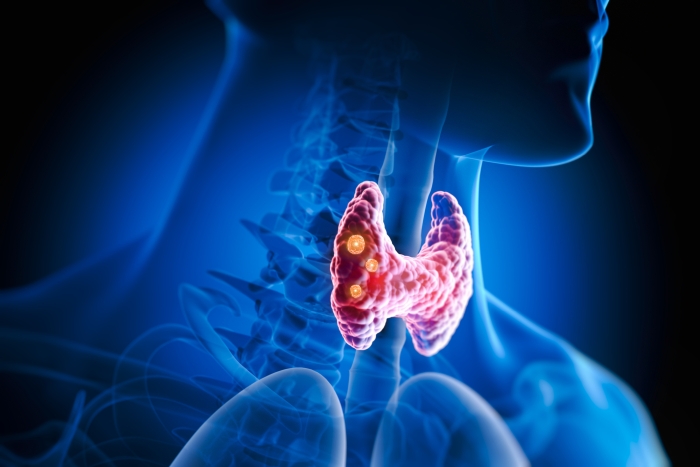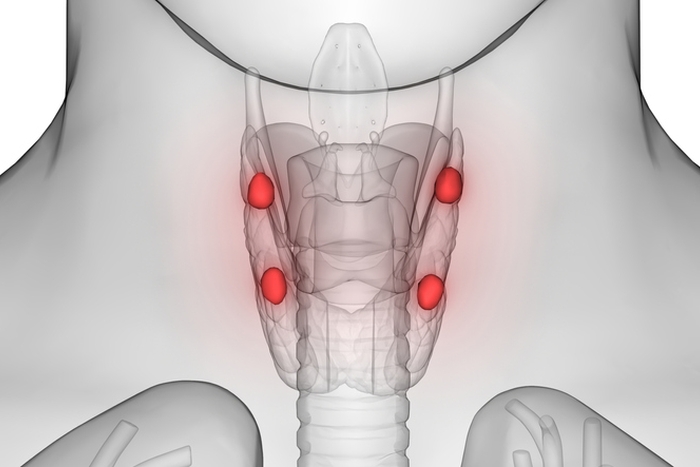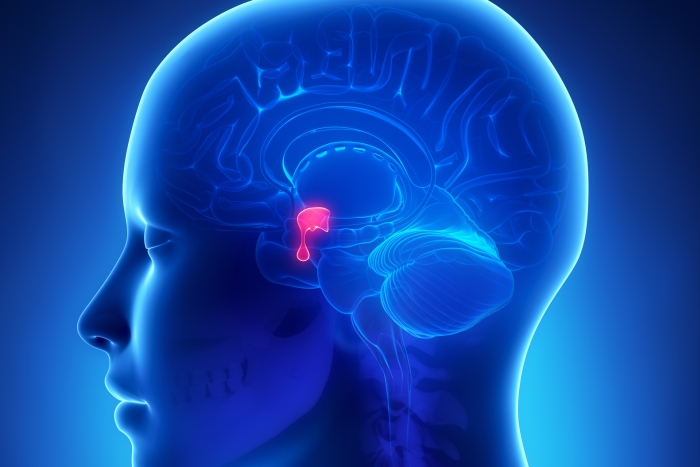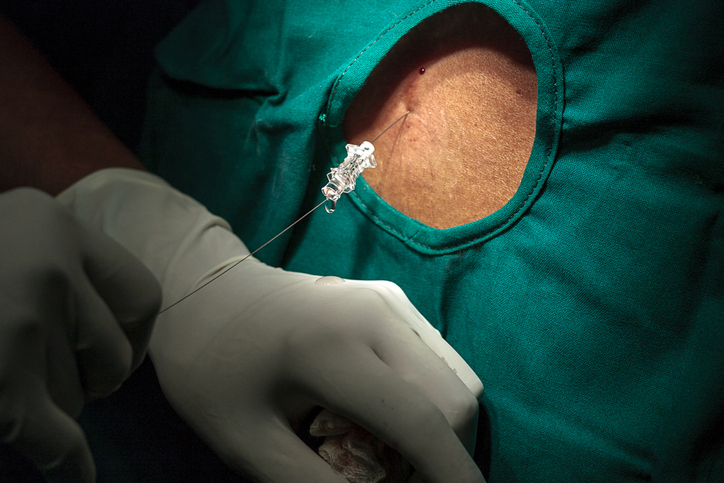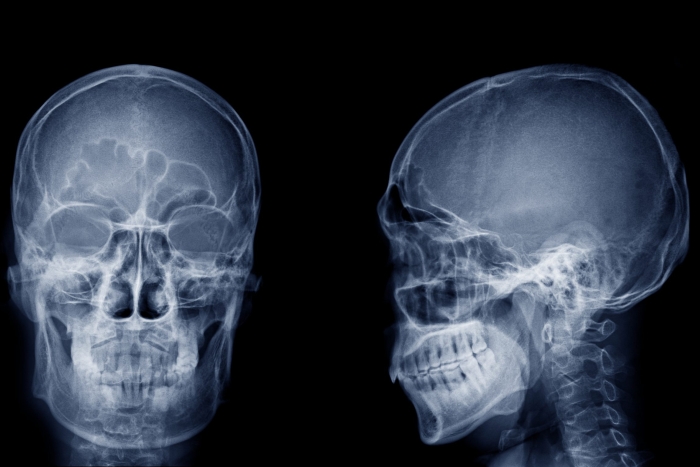Virtual Tour
An otolaryngologist (or an ear, nose, and throat doctor) is a medical specialist who treats conditions affecting the ear, nose, and throat, as well as related structures in the head and neck. This is one of the most complex areas of the body, as it affects your ability to breathe, eat, speak, hear, and view the world. Jamaica Hospital’s expert team of ENTs offer a broad range of advanced surgical and non-surgical treatment options. An ENT doctor in Jamaica, Queens, can help both adults and children living with a variety of conditions.
General Conditions
Our team of otolaryngologists offers effective treatment for many common conditions affecting the ears, nose, and throat. These conditions cover various levels of severity; some, such as certain allergies and hearing problems, may just pose a distracting annoyance that makes your day-to-day activities more challenging, while others, such as sinus infections, ear infections, and sleep apnea, may develop more serious complications without prompt diagnosis and treatment.

Sleep Apnea
Sleep apnea is a breathing disorder that causes you to stop and start breathing while sleeping. This can lead to a few different symptoms, such as loud snoring or fatigue even after a full night’s sleep, and can eventually result in complications such as cardiovascular problems, type 2 diabetes, metabolic syndrome, and liver problems. Treatment may include lifestyle changes, allergy treatment, the usage of devices to help open blocked airways, or surgery.

Tonsillitis
Tonsillitis is inflammation of one or both of the tonsils, which are two tissues on either side of the back of your throat that help prevent germs from entering the body. This inflammation is often caused by an infection and usually occurs in children below the age of 15. Tonsillitis may be temporary in many cases, but chronic tonsillitis can lead to complications such as difficulty breathing or infection of surrounding tissues. If tonsillitis is caused by a bacterial infection, treatment may involve the usage of antibiotics. In cases of chronic tonsillitis, surgery to remove the tonsils may be recommended.

Ear Infections
Ear infections are infections that occur in the middle ear, an air-filled space between the eardrum and the middle ear. This can cause symptoms such as pain, fluid drainage from the ear, and difficulty hearing. Ear infections can lead to potential complications such as permanent hearing impairment, spreading infection of surrounding tissues, and tearing of the eardrum. While many ear infections clear up on their own, you may require antibiotics if your infection is lasting for a long time, repeatedly returning, or causing significant damage.

Hearing Problems
Hearing problems can occur for a variety of reasons, including ear infections, earwax buildup, damage to the inner ear, or a ruptured eardrum. Not all hearing loss is total hearing loss; speech and other sounds may just seem more muffled or distant. Depending on the extent and causes of your hearing problems, treatment could involve earwax removal, medication, the usage of devices such as hearing aids or cochlear implants, or surgery.

Sinus Infections
Your sinuses are a series of connected spaces that drain mucus into the nasal cavity. When these spaces swell, they can become blocked and infected. Sinus infections may be caused by the common cold, allergic rhinitis, or a deviated septum. Symptoms may include facial pain and pressure, headaches, green or yellow nasal discharge, severe nasal congestion, or fatigue. Sinusitis will usually go away within a few days with rest, hydration, and Vitamin C. However, if your symptoms last more than one week or suddenly worsen, you may require antibiotics. In certain cases of chronic sinus infections or sinusitis, surgical treatment may be recommended.

Vertigo
Vertigo refers to a sensation that your surroundings are spinning around you, resulting in symptoms such as dizziness, nausea, headaches, and, potentially, hearing-related problems such as hearing loss or tinnitus. While certain cases of vertigo stem from a condition affecting the brain, most cases of vertigo involve problems with the inner ear or vestibular nerve; this type of vertigo is called peripheral vertigo. Treatment for vertigo may involve rehabilitative therapy, medication, or surgery for the underlying issue causing the problem.

Tinnitus
Tinnitus is a ringing noise that can affect one or both of your ears. This noise is not caused by an external sound; it typically occurs due to an ear injury, infection, or blockage, problems with your circulatory system, or age. It can also occur as a side-effect of certain medications, including some nonsteroidal anti-inflammatory drugs (NSAIDs), antibiotics, cancer drugs, diuretic medications, antimalarial drugs, and antidepressants. Treatment for tinnitus depends on the underlying cause; it can include earwax removal, hearing aids, changes to medication, and recommended lifestyle changes.
Nasal Conditions
A wide variety of conditions can affect the nose, negatively impacting your ability to breath and your overall quality of life. Many of these conditions, such as enlarged turbinates, a deviated septum, and nasal valve collapse, can be treated through procedures routinely performed by our expert team of ear, nose, and throat doctors.
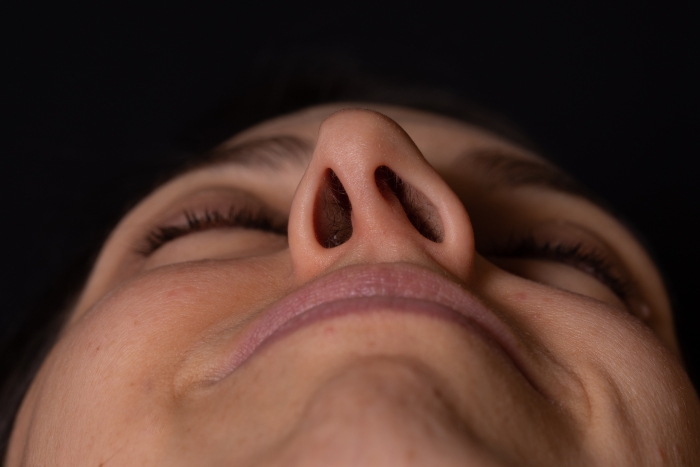
Deviated Septum
A deviated septum occurs when the septum (the thin wall that divides your nasal passages) deviates toward one side of your nose, making one of your nasal passages larger than the other. This can lead to symptoms such as breathing difficulty, facial pain, and nosebleeds; however, most cases of a deviated septum do not cause any symptoms. While medication can treat symptoms of a deviated septum, this condition can only be corrected through surgery.

Nasal Valve Collapse
Nasal valve collapse refers to a narrowing of your nasal valve, the airway inside your nose, resulting in symptoms such as breathing disruptions and nasal congestion. Nasal valve collapse can be internal, meaning that the collapse affects the airway in the middle of your nose, or external, which causes one or both nostrils to visibly collapse when breathing. This condition is typically corrected through a surgical procedure to repair the collapse.
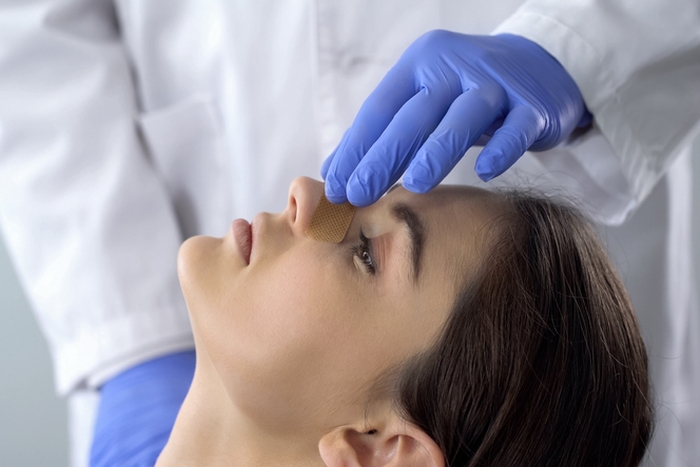
Enlarged Nasal Turbinates
Turbinates are bony, tissue-covered nasal growths that help filter, warm, and humidify the air that you breathe. When they become enlarged, as may occur due to hormonal changes, medications you take, sinus infections, or the common cold, they can make it more difficult to breathe and make you feel more congested. Treatment for enlarged turbinates (also known as turbinate hypertrophy) depends on the underlying cause of the issue and may involve medication and/or surgery.
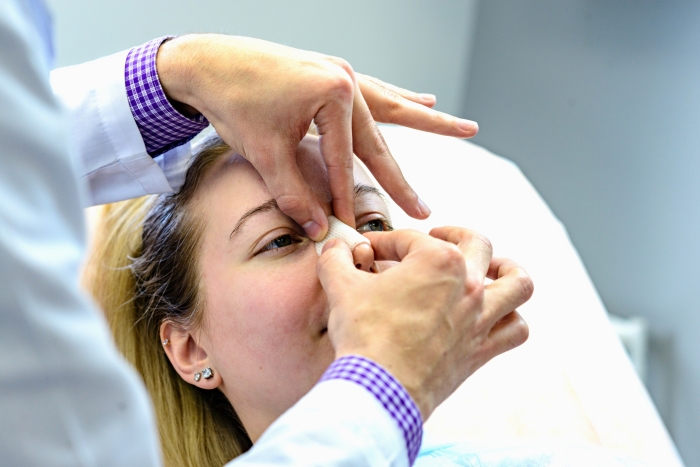
Septal Perforation
Septal perforation refers to a hole in the septum, the dividing wall between your nasal passages. Perforation can occur as a complication of surgery or as a result of injury, infection, certain autoimmune diseases, or overuse of a drug that is ingested nasally. Generally, repairing a septal perforation requires a surgical procedure.






